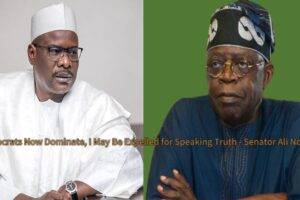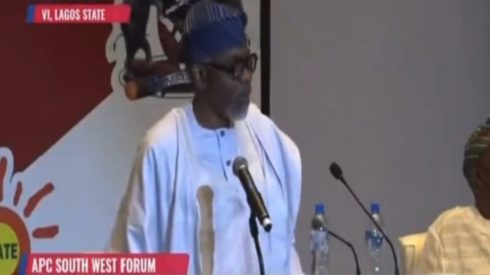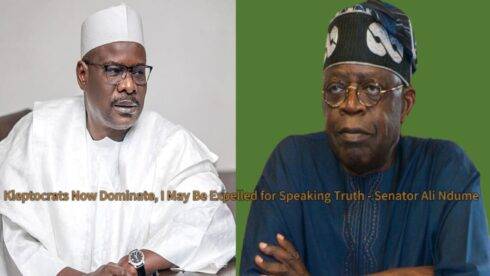As Chief of Staff Femi Gbajabiamila has noted, President Tinubu is acutely aware of the challenges faced by Nigerians. “When everybody tells you why this policy, people are hungry; Mr. President sees it all and is pained,” Femi Gbajabiamila remarked, highlighting Tinubu’s personal connection to the struggles of the average Nigerian. This deep empathy drives his administration’s policy decisions, which aim to balance short-term hardships with long-term economic relief.
President Tinubu’s administration has consistently demonstrated a deep commitment to improving the welfare of ordinary Nigerians. In a country where poverty and economic inequality have long posed significant challenges, President Tinubu has positioned his government as one that prioritizes the needs of the masses. His policies, though sometimes contentious, are rooted in a desire to alleviate the suffering of everyday citizens.
Tackling Hunger and Poverty: A Multifaceted Approach
One of the most pressing concerns of the President Tinubu administration has been addressing hunger and poverty in Nigeria. Despite the global economic downturn, exacerbated by the COVID-19 pandemic and fluctuations in oil prices, Tinubu’s government is striving to mitigate the impact on the nation’s poorest citizens. Several social intervention programs have been launched to provide food and financial assistance to vulnerable groups across the country.
These efforts, though noble, have faced criticism, with some arguing that the policies may not go far enough in addressing the root causes of hunger and unemployment. However, Femi Gbajabiamila’s comments shed light on Tinubu’s vision: the President is keenly aware of the short-term sacrifices required to achieve sustainable economic growth. His administration is walking a delicate line between immediate relief and long-term solutions.
Economic Policies for Sustainable Growth
At the core of President Tinubu’s administration is a drive for sustainable economic growth. While some of his policies, such as the removal of fuel subsidies, have sparked public outrage, the President maintains that these decisions are necessary to stabilize Nigeria’s economy. The subsidy removal, for example, freed up significant funds for infrastructural development and investment in critical sectors like agriculture, health, and education.
Femi Gbajabiamila has repeatedly emphasized that President Tinubu’s approach may seem tough in the short term, but it is grounded in a desire to build a stronger, more resilient economy. The President believes that these economic reforms will create jobs, boost local production, and attract foreign investments, ultimately benefiting the masses. His administration’s long-term goal is to reduce Nigeria’s reliance on oil and diversify the economy.
Balancing Popular Discontent with Governance
Despite President Tinubu’s genuine intentions, his policies have sparked protests and discontent among some segments of the population. The removal of fuel subsidies, in particular, led to widespread demonstrations, with many Nigerians lamenting the increase in fuel prices and the ripple effects on transportation and food costs. The government’s response has been to engage in dialogue with key stakeholders, seeking to explain the long-term benefits of these measures.
Femi Gbajabiamila, who has worked closely with the President throughout these challenging times, reiterated that Tinubu feels the pain of the people. “Mr. President is pained,” Femi Gbajabiamila stated, reflecting Tinubu’s sensitivity to public opinion. The administration has taken steps to ease the burden on the masses, such as providing transportation subsidies and increasing the minimum wage. These initiatives are aimed at striking a balance between tough reforms and public welfare.
Infrastructure Development: A Path to Economic Revival
One area where the Tinubu administration is making significant strides is infrastructure development. Recognizing the importance of robust infrastructure in driving economic growth, the government has prioritized projects in transportation, energy, and digital technology. These initiatives are expected to create jobs, stimulate local economies, and improve the quality of life for millions of Nigerians.
Under Tinubu’s leadership, major highways, rail networks, and power projects are being fast-tracked to completion. The administration has also attracted private sector investment in critical infrastructure areas, demonstrating a commitment to public-private partnerships. By improving infrastructure, the government aims to enhance Nigeria’s global competitiveness and provide a foundation for sustainable economic growth.
A Vision for Nigeria’s Future
President Tinubu’s vision for Nigeria is one of long-term prosperity, where the nation’s vast resources are leveraged for the benefit of all citizens. His administration is focused on laying the groundwork for a more inclusive economy, where opportunities are created for both urban and rural populations. Tinubu’s policies, though difficult in the short term, are designed to set Nigeria on a path to self-sufficiency and reduced dependence on external aid.
Femi Gbajabiamila’s remarks highlight Tinubu’s unwavering dedication to the Nigerian people. The President’s love for the masses, coupled with his deep understanding of their struggles, drives his actions. As President Tinubus administration continues to implement its ambitious agenda, it remains clear that the long-term goal is to transform Nigeria into a country where economic growth and social welfare go hand in hand.
Table of Contents
Discover more from OGM News NG
Subscribe to get the latest posts sent to your email.














